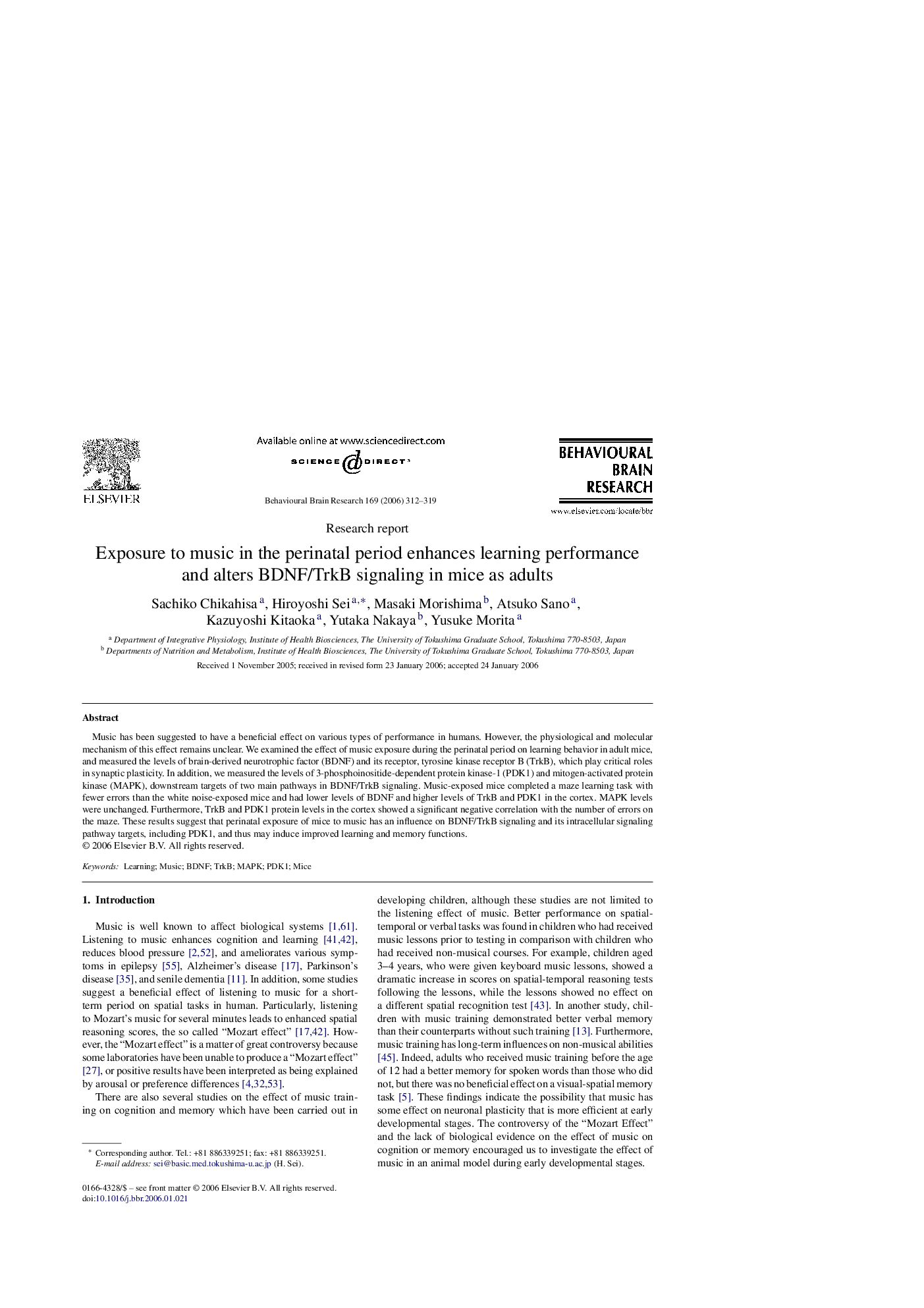| Article ID | Journal | Published Year | Pages | File Type |
|---|---|---|---|---|
| 4316203 | Behavioural Brain Research | 2006 | 8 Pages |
Music has been suggested to have a beneficial effect on various types of performance in humans. However, the physiological and molecular mechanism of this effect remains unclear. We examined the effect of music exposure during the perinatal period on learning behavior in adult mice, and measured the levels of brain-derived neurotrophic factor (BDNF) and its receptor, tyrosine kinase receptor B (TrkB), which play critical roles in synaptic plasticity. In addition, we measured the levels of 3-phosphoinositide-dependent protein kinase-1 (PDK1) and mitogen-activated protein kinase (MAPK), downstream targets of two main pathways in BDNF/TrkB signaling. Music-exposed mice completed a maze learning task with fewer errors than the white noise-exposed mice and had lower levels of BDNF and higher levels of TrkB and PDK1 in the cortex. MAPK levels were unchanged. Furthermore, TrkB and PDK1 protein levels in the cortex showed a significant negative correlation with the number of errors on the maze. These results suggest that perinatal exposure of mice to music has an influence on BDNF/TrkB signaling and its intracellular signaling pathway targets, including PDK1, and thus may induce improved learning and memory functions.
